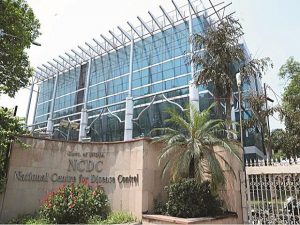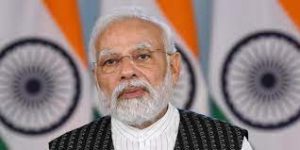Today Current Affairs: 9th September 2022 for UPSC IAS exams, State PSC exams, SSC CGL, State SSC, RRB, Railways, Banking Exam & IBPS, etc
Table of Contents
National Centre For Disease Control:

The Union Health Minister virtually laid the foundation stone for National Centre for Disease Control (NCDC) branches in Andhra Pradesh, Arunachal Pradesh, Kerala, Maharashtra, Tripura, and Uttar Pradesh.
- The National Centre for Disease Control (NCDC), formerly National Institute of Communicable Diseases (NICD), had its origin as the Central Malaria Bureau, established at Kasauli (Himachal Pradesh) in 1909.
- NICD was transformed into the National Centre for Disease Control (NCDC) with a larger mandate of controlling emerging and re-emerging diseases in 2009.
- It is under the administrative control of the Director General of Health Services, Ministry of Health and Family Welfare, Govt. of India.
- It functions as the nodal agency in the country for disease surveillance facilitating the prevention and control of communicable diseases.
- In coordination with the State Governments, NCDC has the capacity and capability for disease surveillance, outbreak investigation, and rapid response to contain and combat outbreaks.
- The Institute provides referral diagnostic services to individuals, communities, medical colleges, research institutions and state health directorates.
- Headquarters: The Institute has its headquarters in Delhi.
- It has eight branches located at Alwar (Rajasthan), Bengaluru (Karnataka), Kozikode (Kerela), Coonoor (Tamil Nadu), Jagdalpur (Chattisgarh), Patna (Bihar), Rajahmundry (Andhra Pradesh) and Varanasi (Uttar Pradesh).
3rd International Day Of Clean Air For Blue Skies:

The Ministry of Environment, Forest and Climate Change (MoEF&C) organized 3rd International Day of Clean Air for blue skies as ‘Swachh Vayu Diwas (“Swachh Vayu Neel Gagan”) ’today to raise awareness and facilitate actions to improve air quality under National Clean Air Programme (NCAP).
- 20 cities selected out of 131 for its National Clean Air Programme (NCAP) have attained the National Ambient Air Quality Standards (60 microgram per cubic meter) in 2021-22, compared to their 2017 levels.
- The theme is “The Air We Share”.
- It highlights the need for immediate and strategic international and regional cooperation for more efficient implementation of mitigation policies and actions to tackle air pollution.
- During its 74th session, the United Nations General Assembly adopted a resolution to hold an International Day of Clean Air for Blue Skies on 19th December, 2019.
- The resolution also encouraged the United Nations Environment Programme (UNEP) to facilitate the day’s observance in collaboration with other relevant stakeholders.
- In the lead-up to the passing of the resolution, the Climate and Clean Air Coalition collaborated with UNEP and the Republic of Korea to advocate for the day.
Ceasefire Agreement With NSCN (K):

The Ministry of Home Affairs (MHA) extended the ceasefire agreement with the Niki Sumi faction of the National Socialist Council of Nagaland.
- The MHA said that a ceasefire agreement was in operation between the Government of India and NSCN (K).
- “It was decided to extend the Ceasefire Agreement with the NSCN (K) Niki for a period of one year with effect from 08.09.2022 to 07.09.2023,” the MHA said in a statement.
- The MHA first signed the agreement in 2021.
- Sumi is wanted by the National Investigation Agency (NIA) for allegedly planning the attack on an army convoy in Manipur’s Chandel district on June 4, 2015 in which 18 personnel were killed.
The Gender Snapshot 2022:

The report entitled “Progress on the Sustainable Development Goals (SDG): The Gender Snapshot 2022” was launched by United Nations (UN) Women and the UN Department of Economic and Social Affairs (UN DESA).
- The report highlighted that Substainable Development Goal-5 (SDG-5), or achieving gender equality, will not be met by 2030 at the current pace of progress.
- By the end of 2022, around 383 million women and girls will live in extreme poverty (on less than USD 1.90 a day) compared to 368 million men and boys.
- It will take close to 300 years to achieve full gender equality at the current rate of progress.
- It will also take at least 40 years to achieve equal representation of women in national parliaments.
- Progress must be 17 times faster than last decade’s progress of the last decade, to eradicate child marriage by 2030.
- Girls from the poorest rural households and in conflict-affected areas are expected to suffer the most.
- In 2021, about 38% of female-headed households in war-affected areas experienced moderate or severe food insecurity, compared to 20% of male-headed households.
- Globally, women lost an estimated USD 800 billion in income in 2020 due to the pandemic.
- More women and girls are now forcibly displaced than ever before, some 44 million women and girls by the end of 2021.
- Over 1.2 billion women and girls of reproductive age (15-49) live in countries and areas with some restrictions on access to safe abortion.
Solar-Powered Drones : China

China’s first fully solar-powered unmanned aerial vehicle has successfully completed its maiden test flight with all onboard systems functioning optimally.
- With a wingspan of 164-ft, the drone is a large machine powered entirely by solar panels.
- The high-altitude, long-endurance (HALE) UAV can stay airborne for long durations.
- Named the Qimingxing-50, or Morning Star-50, this drone flies above 20-km altitude where there is stable airflow with no clouds.
- This helps these drones to make the maximum use of solar equipment to stay functional for extended durations.
- The fact that the drone can operate in near-space 20 km to 100 km above the Earth’s surface makes it capable of carrying out satellite-like functions.
UNESCO Global Network Of Learning Cities:

The Indian cities, Nilambur and Thrissur in Kerala, have gained recognition from UNESCO after they became the nation’s first entrants in the UNESCO Global Network of Learning Cities along with Telangana’s second largest city, Warangal,
- According to UNESCO’s website, the network is a global policy-oriented network offering “inspiration, know-how and best practice”.
- There are six features that define a learning city:
- Effectively mobilises its resources in every sector to advocate inclusive learning
- Revitalises learning in families and communities
- Facilitates learning for and at workplaces
- Extends the use of modern learning technologies
- Augments quality and excellence in learning
- Fosters a culture of learning throughout life.
7th Eastern Economic Forum:

Prime Minister Narendra Modi addressed the Plenary Session of 7th Eastern Economic Forum being held in Vladivostok through video conferencing.
- Prime Minister Narendra Modi has said that India is keen to strengthen its partnership with Russia on Arctic subjects.
- He said, along with energy, India has also made significant investments in the Russian Far East in the fields of pharma and diamonds.
- The Prime Minister said, in 2019, he had a chance to participate in this forum face-to-face and at that time he had announced the Act Far-East policy of India.
- Eastern Economic Forum is an international forum held each year in Vladivostok, Russia, for the purpose of encouraging foreign investment in the Russian Far East.
- It is held each year since 2015 in September, at the Far Eastern Federal University in Vladivostok, Russia.
India-US 2+2 Inter-Sessional Meeting:

India-US 2+2 Inter-sessional meeting was held in New Delhi where the senior officials vowed to further strengthen the strategic partnership between both nations.
- The officials also reviewed the outcomes of the 2+2 Ministerial Dialogue which was held in April 2022.
- The India-US 2+2 Inter-sessional meeting was led by senior officials from the Ministry of External Affairs, Ministry of Defence and the US Departments of State and Defence.
- This is the sixth India-US 2+2 Intersessional Dialogue.
- Through these dialogues, the United States and India will advance an ambitious set of initiatives across the defence partnership ahead of the 2+2 ministerial next year, including in support of information-sharing, logistics, technology, and high-end navy cooperation.
- India is the centrepiece of the Joe Biden administration’s Indo-Pacific strategy – Indian Foreign and Defence Ministers recently held the ‘2+2’ meeting with their American counterparts.




